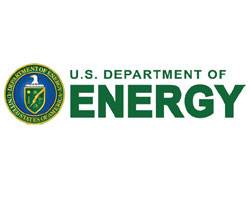ASFE Steven Winberg Speaks at the International Pittsburgh Coal Conference

September 13, 2019 - The U.S. Department of Energy’s (DOE) Assistant Secretary for Fossil Energy (ASFE) Steven Winberg spoke at the International Pittsburgh Coal Conference (PCC) in Pittsburgh, PA on September 4th.
The 2019 PCC, which concluded on Friday, September 6th, was hosted by the University of Pittsburgh’s Swanson School of Engineering. It is an outgrowth of a series of conferences spanning more than three decades, and is dedicated to providing a unique opportunity for an in-depth and focused exchange of technical information and policy issues that affect the coal industry.
.jpg)
ASFE Winberg began his speech by sharing his appreciation for the University of Pittsburgh and its commitment to the University Coalition for Fossil Energy Research, which collaborates with the National Energy Technology Laboratory on early-stage fossil energy research. He also said that the United States has many real reasons to be optimistic about coal and its future, especially under the Trump Administration.
“The President supports harnessing the full power of innovation to make this critical fuel cleaner. He is also working to undo overly burdensome regulations on coal and fossil energy more broadly,” said ASFE Winberg in his prepared remarks. “We recently had a huge success on that front, with the Environmental Protection Agency replacing the previous Administration’s Clean Power Plan with the Affordable Clean Energy, or ACE, rule.”
ASFE Winberg noted that DOE’s Energy Information Administration projects that global coal consumption will remain relatively stable between 2015 and 2040, which is encouraging news for U.S. coal exports. Last year, the United States exported 116 million short tons of coal, the second year in a row that coal exports have risen. That is also the highest level of coal export in the past five years.
“We have enormous coal resources available, and there’s a massive market in Asia—but we have a lack of export capacity on the West Coast. This Administration wants to expand that capacity,” said ASFE Winberg in his prepared remarks. “So, looking across the landscape, here’s what we see—coal will continue to be in demand as a global energy source, and it will continue to be critical to the resiliency, reliability, and stability of the Nation’s electricity grid.”
ASFE Winberg highlighted the many ways DOE is working to make the U.S. current coal power fleet more efficient and competitive, to bring the advanced coal plants of the future online.
A few of these investments and research efforts include DOE’s robust carbon capture, utilization, and storage (CCUS) program; the COAL First initiative; new policies that encourage the use of carbon capture technologies, such as the 45Q tax credit; Direct Air Capture system and technology research; DOE’s distinct coal-to-products research and development initiative; and more.
“At the end of the day, new technologies need to be tested and proven. Innovative processes need to be refined. The groundwork for the next generation of power plants needs to be laid. CCUS technologies need to be commercialized and deployed. And advanced systems to convert coal and carbon dioxide into valuable products need to be in place,” said ASFE Winberg in his prepared remarks. “Our research will help do this. But collaboration with industry, academia, and our international partners will continue to be critical to our success in these endeavors.”
ASFE Winberg’s prepared remarks from PCC are available here. For further information about DOE’s Office of Clean Coal and Carbon Management, click here.





.jpg)